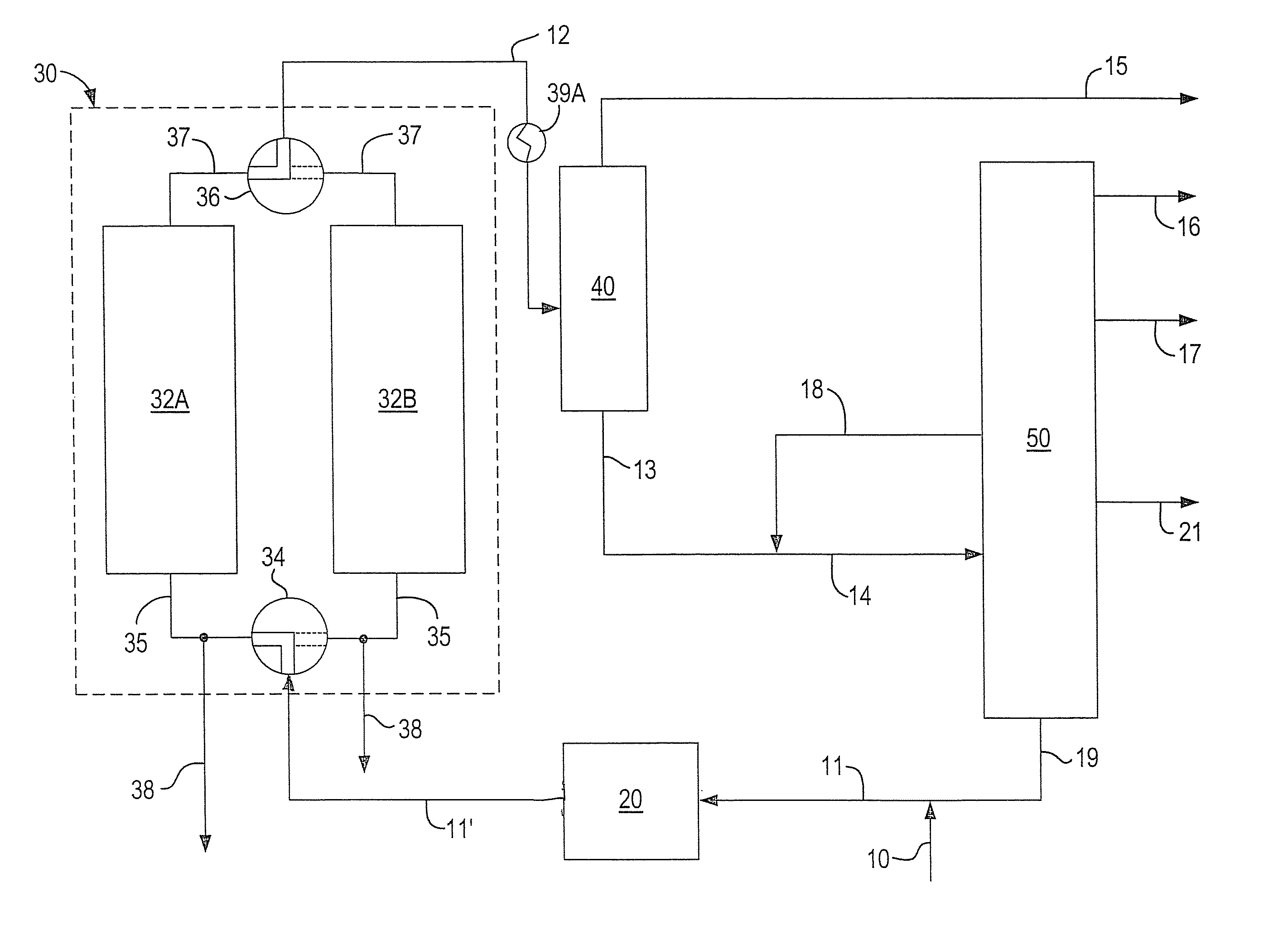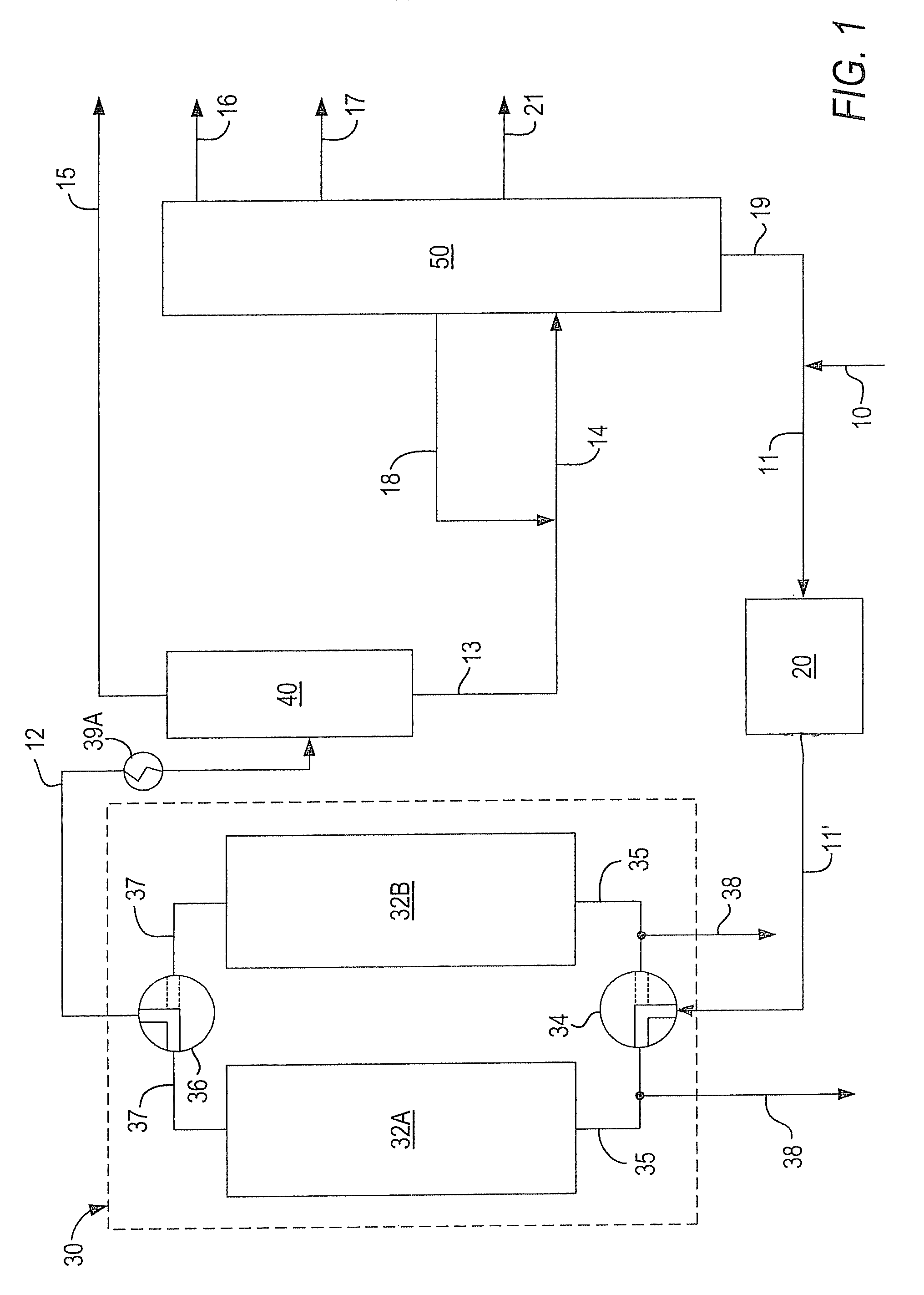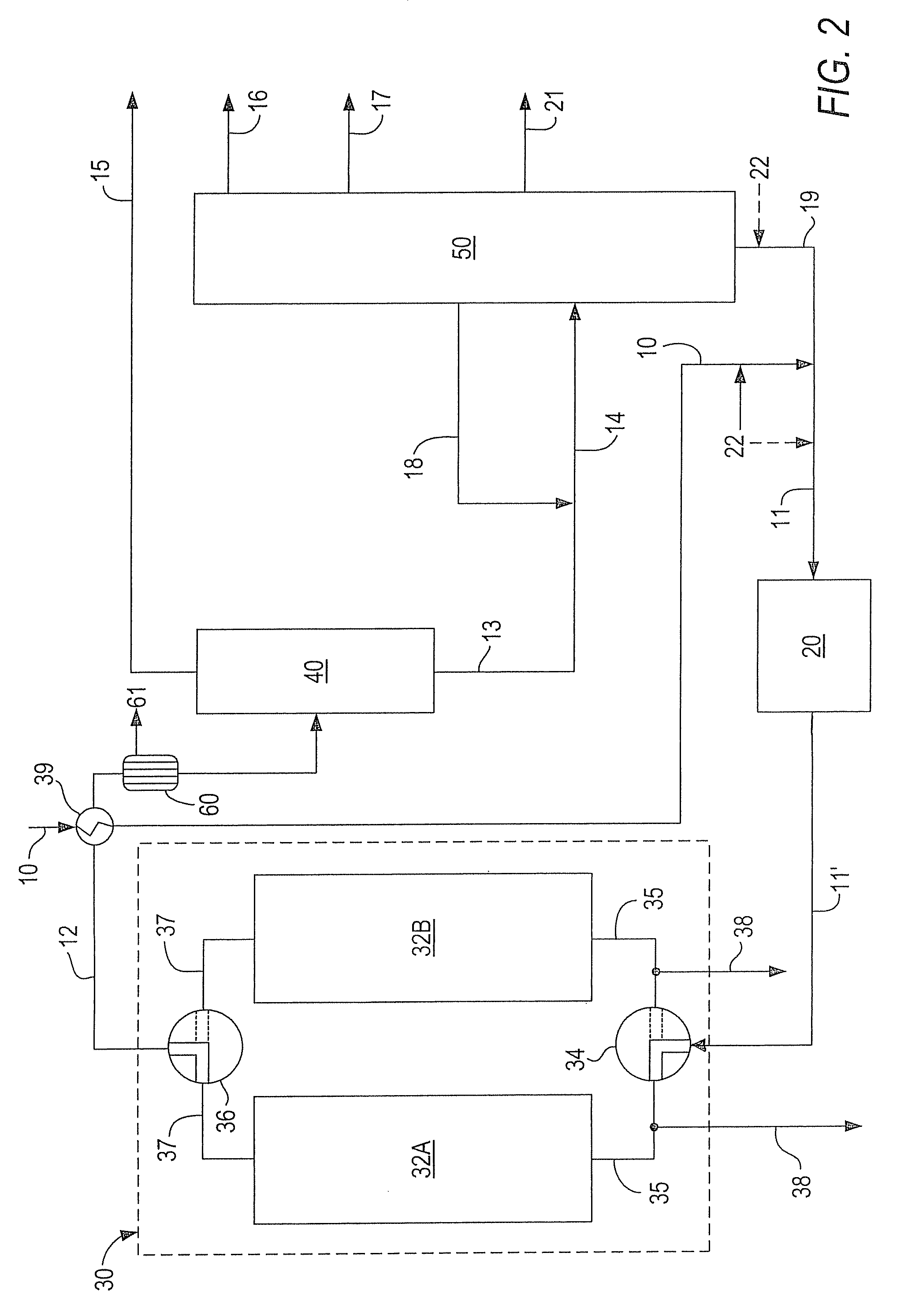Process for delayed coking of whole crude oil
a technology of whole crude oil and coking process, which is applied in the direction of hydrocarbon oil treatment products, thermal non-catalytic cracking, water treatment, etc., can solve the problems of increasing hydrocarbon liquid yield, decreasing the coke yield of the delayed, and increasing the coke yield, so as to enhance the thermal cracking reaction and stabilize the free radicals
- Summary
- Abstract
- Description
- Claims
- Application Information
AI Technical Summary
Benefits of technology
Problems solved by technology
Method used
Image
Examples
example
[0059]A coking process model commonly used in the industry was modified to reflect the presence of light components and the corresponding yields based on the mid-boiling temperatures of the respective cuts. The model also included experimental data regarding the characteristics of the feedstream.
[0060]An Arabian heavy crude oil feedstream, the properties and composition of which are set forth in Table 1, where CRR is the Conradson carbon residue as a percent of the weight of the starting material, IBP and FBP are initial and final boiling points, respectively.
[0061]
TABLE 1PropertyArab Heavy Crude OilAPI Gravity, ° 27.2Specific Gravity 0.892Carbon Content, W % 84.45Hydrogen, W % 12.42Sulfur, W % 2.99Nitrogen, W % 0.14CCR, W % 3.99Boiling Point Range, ° C. 36+Distillation ASTM D5307° C.IBP23° C. (due to dissolved light gasses) 5 V % 6810 V %11730 V %25450 V %40160 V %484FBP540
[0062]This feedstream is subjected to delayed coking at a temperature of 496° C. from the furnac...
PUM
| Property | Measurement | Unit |
|---|---|---|
| boiling point | aaaaa | aaaaa |
| temperature | aaaaa | aaaaa |
| thermal cracking temperatures | aaaaa | aaaaa |
Abstract
Description
Claims
Application Information
 Login to View More
Login to View More - R&D
- Intellectual Property
- Life Sciences
- Materials
- Tech Scout
- Unparalleled Data Quality
- Higher Quality Content
- 60% Fewer Hallucinations
Browse by: Latest US Patents, China's latest patents, Technical Efficacy Thesaurus, Application Domain, Technology Topic, Popular Technical Reports.
© 2025 PatSnap. All rights reserved.Legal|Privacy policy|Modern Slavery Act Transparency Statement|Sitemap|About US| Contact US: help@patsnap.com



